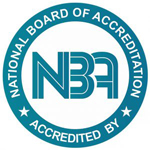Research
IIHMR Bangalore
Completed Research Projects - 2017
Project Title
Pre-testing the Creative Routes & IEC Materials of WASH, Child Protection & Nutrition Issues for BCC in Karnataka
Funding Agency
UNICEF Hyderabad Office, India
Project Team
Dr. Usha Manjunath (Principal Investigator)
Dr. R. Sarala, and Mr. Rajendra
About The Project
IIHMR, Bangalore, had been funded by UNICEF to pre-test the IEC tools: a) Wash, covering sanitation, hygiene, and safe water issues; and b) Strategic communication of children, covering protection and nutrition issues in the state of Karnataka. Pre-testing was carried out in Mysore and Koppal divisions. The IEC tools consisted of prototypes for posters, leaflets, flip books, hoardings, tin plates, wall paintings, bus panels, etc., as well as audio/video spots. FGDs and IDIs are the main qualitative methods used to pre-test the materials. The audience for pre-testing the communication package included men, women, children (both boys and girls), youth, communities, influencers including frontline workers and community leaders such as PRIs, and district and state level stakeholders related to the theme.
Project Title
Pre-Testing of IEC Materials on Nutrition Intervention (MIYCN) for Behavioural Change Strategy in UP and Bihar
Agency
Alive & Thrive
Project Team
Dr. R. Sarala (Principal Investigator), Dr. Usha Manjunath
Dr. Pradeep Panda, Dr. Veena Nair, Mr. Satish Singh
Dr. Deepashree
About The Project
A well-designed IEC material is essential for any health promotion activities and for effective intervention to bring about appropriate behaviour change among the target population. IIHMR Bangalore is a technical partner to Alive and Thrive to pre-test the communication package on maternal and child nutrition. The study was carried out in Nalanda District in Bihar and Gardoi District in UP. The study was pre-tested with both print materials, such as a family calendar, a job aid (reminder card), flipcharts, flyers, and videos. The audience for pre-testing the IEC materials includes pregnant women, husbands, mother-in-laws, father-in-laws, RMPs, community leaders, private doctors and pharmacists, religious leaders, ANMs, ASHAs, AWWs, SHG members, village elders, and GP heads. Qualitative methods, viz., FGDs and IDIs, were adopted to pre-test the IEC materials. The study aimed to provide inputs related to audience understanding of the message, appropriateness and effectiveness of the materials, likes and dislikes, and cultural insights to make materials more relevant and acceptable to the intended audiences.
Project Title
Participatory Action Research on Interventions to Support Deaf Young People, Karnataka
Agency
Deaf Child Worldwide (DCW), International Development
Agency of the National Deaf Children Society (NDCS)
London, UK in collaboration with IIHMR, Kolkata
Project Team
Dr. Usha Manjunath, Mr. Syed Ali and Mr. Mahadev Prasad
About The Project
Keeping in view with DCW’s mission to remove the barriers to the achievement of deaf children throughout the world and strategies empowering families to achieve the best outcomes, innovating new approaches to the development of effective communication, and challenging social attitudes, the present project, in collaboration with Samuha, an NGO in Koppal, Karnataka, is a participatory action research on interventions to support Deaf Young People (DYP). The research aimed to produce a robust body of evidence to demonstrate the changes in the lives of DYPs through DCW interventions and arrive at a model based on good practices in the field, including strategies, project experience, and tools. Participatory action research methodology also helped to identify challenges and gaps in the current programmes and provide recommendations for effective planning, implementation, and replication of interventions on improving the quality of lives of DYPs. In a span of 18 months, the project carried out reflective sessions on individual and organisational purposes, trained the DYPs on action research in partnership with Samuha, and developed and implemented the action research model in Koppal for DYPs. The research provided evidence on programme effectiveness that DCW and its partner organisations (Samuha, in Karnataka) could use in policy development and intervention strategies in the future. The learning could be used to advocate for change at local, regional, national, and international levels.






